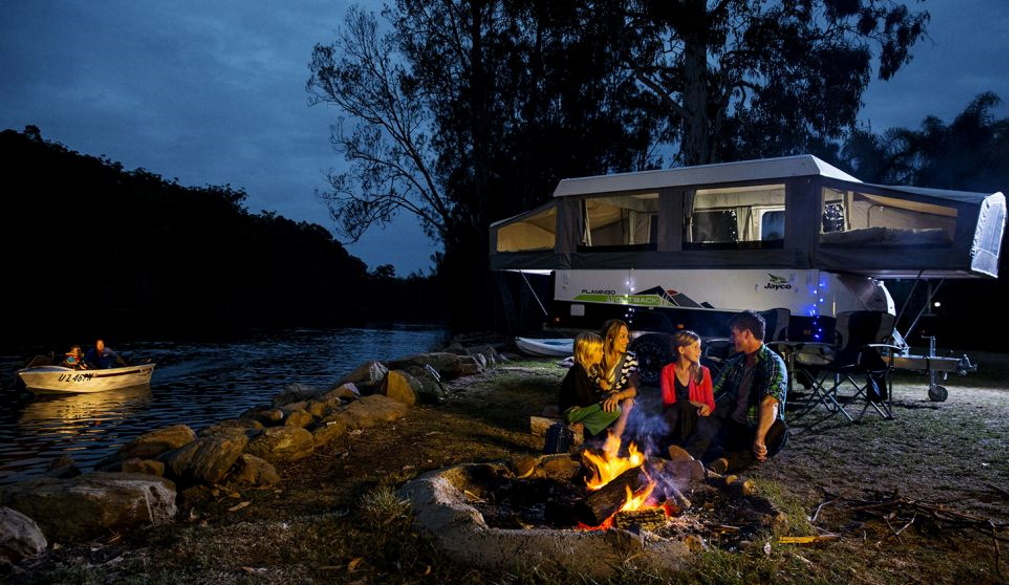Here is a great First Aid checklist for when you go camping
- Written by NewsServices.com

Camping typically means spending more time outdoors, and sometimes minor ailments and injuries are inevitable. Taking a fully equipped first aid kit with you is a no brainer, but what should your kit include? Here is our list of essentials you should be taking when camping.
Being prepared
It's one thing to have all the right first aid kit supplies while away camping, but if you have no idea how to use them, they aren't going to be much good to you, or you may end up doing more damage than good. It pays to do a first aid course if you are not already competent in applying first aid. It can give you the confidence to help others in their time of need if the occasion were to arise.
Camping first aid essentials
You can buy first aid kits premade, or you can make one yourself including these essentials plus any others you may think will be beneficial to have on hand. If you already have a first aid kit, make sure you replenish any items that have past their expiry date or have been used already before you go.
Your first aid kit may change over time to match the level of camping you are doing. For example, if you are camping in an isolated area with no phone coverage, you want to consider items you'll need if you cant get immediate help. Here are some essentials to check off your list when going camping:
Camping First Aid Checklist
Antiseptic creams/ointments/sprays – These are handy, especially when camping and wounds and scratches get dirt or contaminated water in them. Antiseptics can help to cleanse the area and prevent infection.
Antiseptic wipes - Alcohol-free is preferred. These can help to clean the area around a wound.
Saline satchels – These are good for cleansing eyes that have contaminants in them and wounds.
Hand sanitiser – When you are camping, clean water and soap aren't always accessible. Hand sanitiser allows you to sanitise your hands if you are in this situation.
Band-aids – It's a good idea to have a selection of these in your first aid kit. They'll always come in handy.
Bandages - Bandages in a variety of sizes, both stretch and non-stretch types are recommended. These can be used as slings and to cover wounds.
Gauze – You should have gauze in a few different sizes or a roll that you can cut to size. This can be used to soak up blood and dress wounds.
Snake immobilisation bandage – These specialised bandages have markings on them which indicate when the right amount of pressure is used.
Medical grade tweezers – These can be used to remove splinters.
Medical grade scissors – Can be used to cut bandages and gauze to size.
Medical tape, safety pins and clips – All of these can be used to keep a bandage in place.
Disposable gloves – Disposable gloves can prevent cross-contamination of bodily fluids. They can keep you and the patient safe.
Instant hot and cold packs – These are great for aches and sprains as well as inflammation.
Notepad and pencil – This enables you to write down important information if need be.
As you'll likely be spending more time outdoors, the following items can be very useful:
Sunscreen – With an SPF of 50 + for ultimate protection.
Aloe vera gel/sunburn gel – This can help to soothe sunburnt skin.
Pain relief medication – Both ibuprofen and paracetamol can help to relieve minor aches and pains.
Bug spray and bug bite treatment – To keep the bugs away and treat bites if needed.
Antihistamines – In case you or someone else has an allergic reaction such as hayfever.
Any personal medications – If you take medications, ensure you bring them with you.
A thermal blanket – These can help if you get lost or the temperature plummets.
A source of light – Such as a torch and plenty of spare batteries.
Lighters or matches – So you can light fires easily.
Survival aid compass – This can help you find help if you get lost or disorientated.
A well equipped first aid kit can allow you to relax while camping
While we all hope we'll never have to use our first aid kits, the reality is that accidents do happen and having the right equipment on hand can give you peace of mind knowing that if something does happen, you can treat it on the spot. Keeping your campers and caravans equipped is also vital. Storing a first aid kit in the vehicle always ensures safety, Syndey caravans should also be ready for when things could go wrong.
Ensure you have enough supplies for the number of people going with you. For example, packing 4 band-aids for a group of 6 isn't going to cut it. If there are any other items that you believe will benefit you when on a camping trip, by all means, add them to your kit.
Store your first aid items securely
Your first aid items should be kept in a waterproof container/kit. They need to be protected against moisture and dust. You can purchase first aid kits to store your items in or use an airtight plastic container and label it with a large red or green cross so it is easily detectable.
If you are looking to make up a camping first aid kit or to restock your existing one, check out our online store here at The First Aid Shop. We have all the first aid items you could possibly need for a camping trip or if you have any questions, feel free to reach out to our friendly team.




